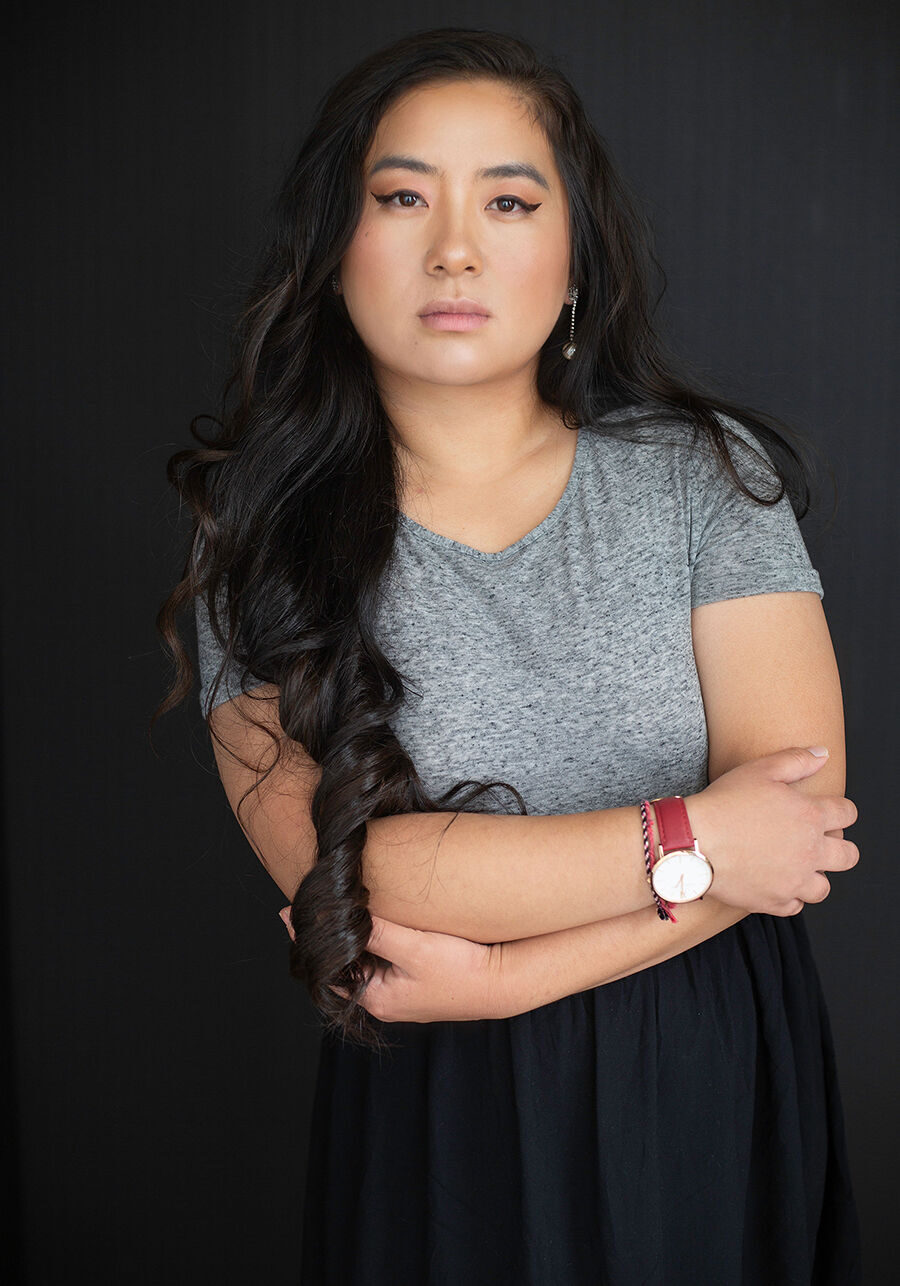I am not supposed to be here in the chapel lest I trip and fall and lose my spirit. No children are allowed here, but none of my sisters want to stay home to watch after me. They come for the grandmother with the healer’s hands—the one whose steady fingers unknot my stomachaches. I recognize her enlarged photo by the front door and, as my sisters pull me past the main hall, I see her daughter sitting in the foremost row, her gaunt body facing the coffin. The qeej player blows into his bamboo pipe instrument and walks in my direction.
********
Every night, I linger in the limbo between consciousness and vivid dreams. Returning to the living is hard when imprints of faces linger. The deafening ringing in my ears scrambles voices I almost recognize. I fight back a drowning fear and strain to recall—spirits, ancestors, gods, deities, please—I am so close to an answer.
********
After my mother learns that I am in a serious relationship with an outsider, a man who isn’t Hmong, she asks, Who will bury you when you die?
********
When a traditional Hmong daughter marries a traditional Hmong man, her spirit joins the husband’s ancestral lineage. Because she is no longer her family’s, she cannot die in their home.
********
The man I love was raised Catholic but is not religious. As a person in the sciences, he wants to be cremated at the end of his life and scattered back into nature. It’s reasonable for him, but it feels like I’ve been abandoned.
********
When my paternal grandfather passes, I do not return home right away to help with funeral preparations. I rationalize that, with college classes and work, it is impossible. I couldn’t come back every day for two weeks to fold paper boat money or help prepare food for those who have come to comfort our family. I couldn’t do it, I thought.
My uncle passes away the following year. I do not attend this funeral either because it coincides with finals week. No one gives me any flak for not showing up—children of refugees these days must make sacrifices for future economic mobility, and I am the most successful daughter in school—but I can’t bring myself to meet their eyes.
********
bIf my mother’s children do not follow traditions, who will fold blessing papers to send her off? Prepare chickens and call her spirit to eat year after year? Who will remember her name and who will be lost?
********
The young man plays the qeej, the song from the pipes quavering like a last breath on every note. Heavy thuds from the ceremonial drum, set up in front of the coffin, accompany the song, leading a somber trail to the spirit world.
An aunt beckons me to sit, and I join a few rows behind my cousin. My cousin is tear-stained, and she bows toward her mother while raising an unburned incense stick. My other cousins follow suit. I look to them, to her, to the qeej and drum players, but I can’t decipher when the right time is to lower my head.
********
I dream that my mother walks into a volcano, her back turned to me. I wake up in tears, my chest ready to cave, my voice scared into silence unlike all those elders who hover over the embalmed body and wail.
********
My mother and I visit a maternal grandfather after he is placed in an assisted living facility. Because his daughters are married far away and his only son is like a ghost, this maternal grandfather lives like this now. His items were few, placed in the cubby of the skinny desk next to his bed. He shares the room with another person, but we do not see who it is. While my mother pulls out white jasmine rice and pork stew with mustard greens, I look around the courtyard. There are foliage and vine-like plants alongside the walls. A lone tree with a few leaves provides some shade.
I ask him, Are there any Hmong here? Anyone you can talk to?
And he replies, No.
********
How to say goodbye—what to say goodbye to?
********
At paternal grandfather’s funeral, someone announces, It is time to receive blessings. Come receive fortune from your dearly departed before he finishes his journey.
I slide in the first row with other direct descendants and watch.
The qeej player sweeps across the main hall and walks down the aisle between pews, the song amplified throughout the chapel. He turns past the women gathered in the back and the men playing cards in the side room, to all the pathways available before circling back to us by the coffin. He steps around one of the wooden tripod legs that holds the drum. Then, he lowers onto one knee and brings forth one more weeping note. I lower my head and raise my incense sticks, eyes closed.
I listen, and I hear it—an aching.

